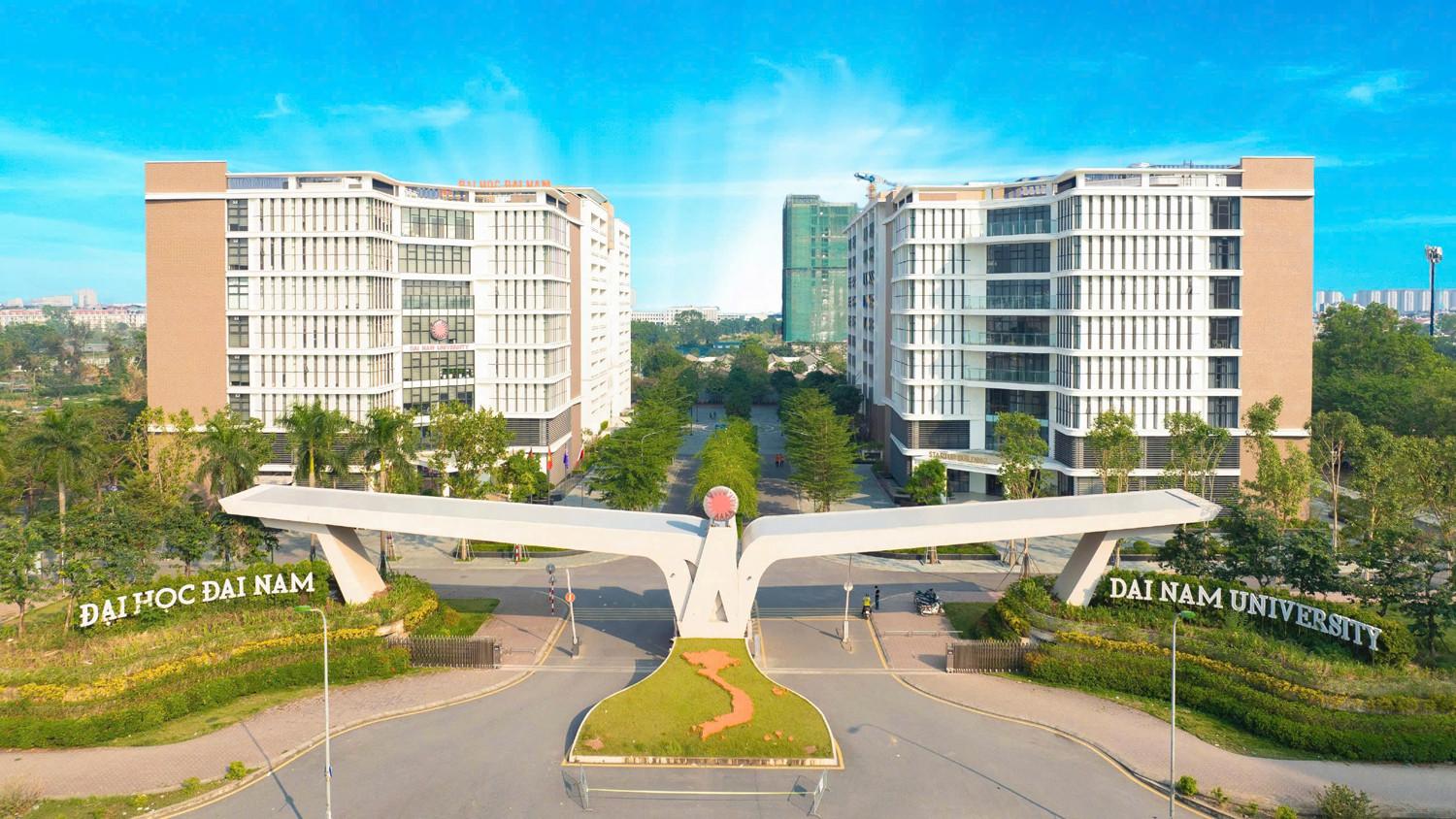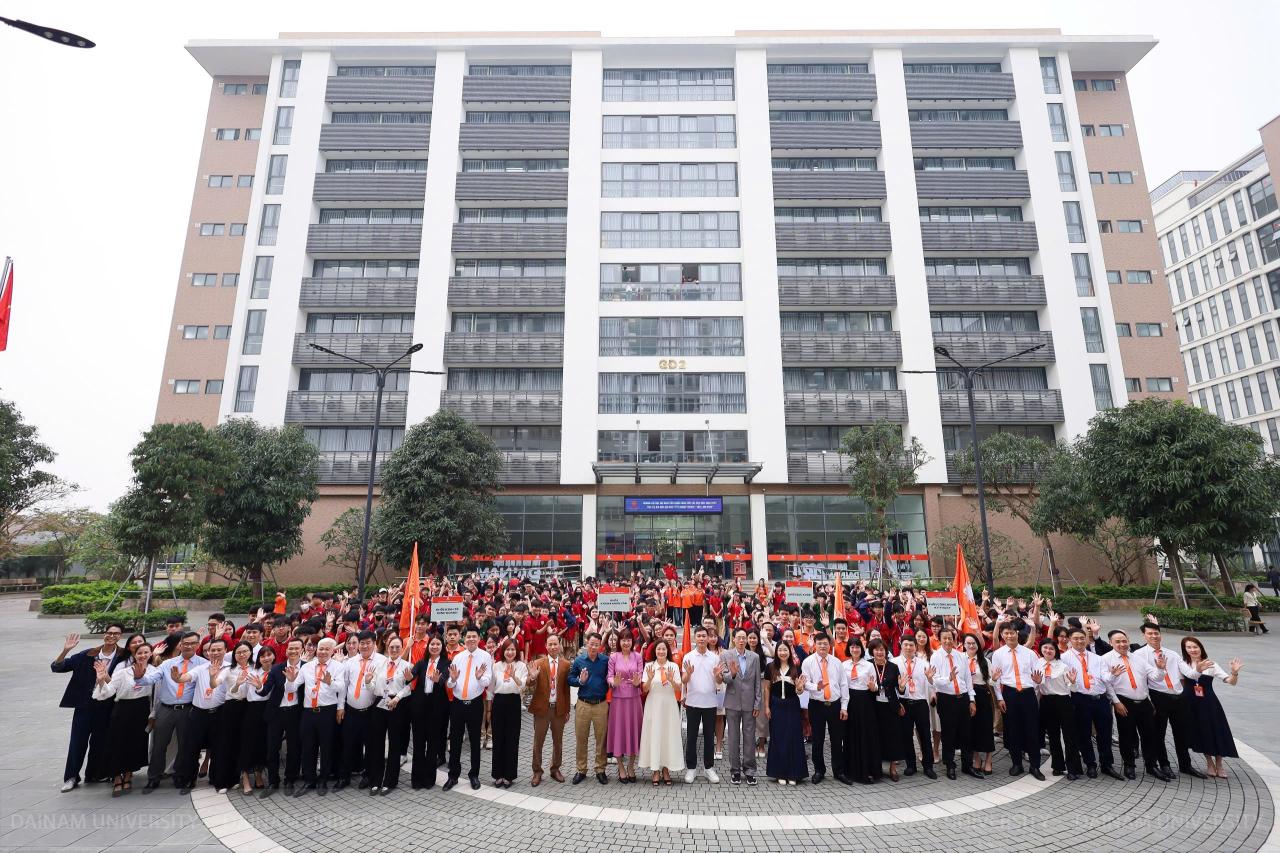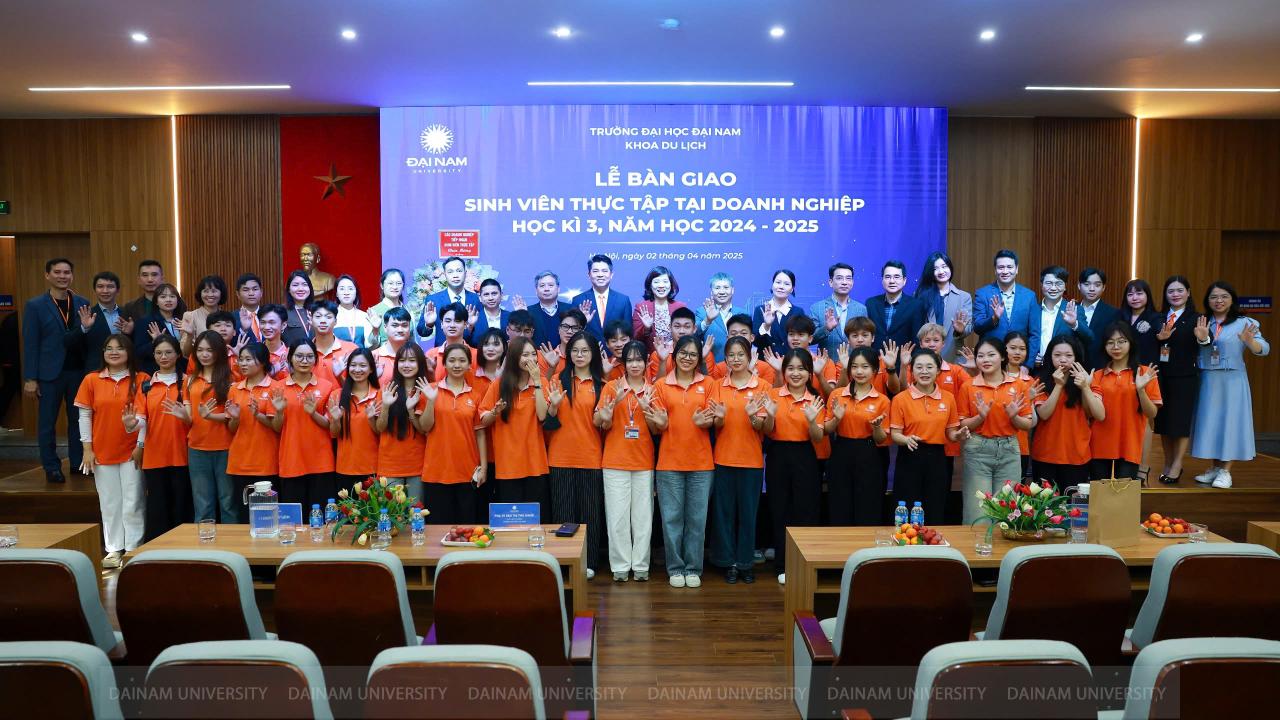The role of teachers in the industrial revolution 4.0
Posted date 03/10/2017
21.450 view

Industrial Revolution 4.0 is a hot topic, mentioned a lot in economic, social, scientific and technological forums.
MSc. Nguyen Thi Thanh Xuan
Faculty of Accounting – Dai Nam University
The 4.0 industrial revolution is a hot topic, mentioned a lot in economic, social, scientific and technological forums. We all know that this is a revolution in smart manufacturing based on breakthrough achievements in the fields of artificial intelligence, virtual reality, mobile networks, Internet of Things, cloud computing, automatic machines (such as self-driving cars), 3D printing, biotechnology, nanotechnology... with the foundation of breakthroughs in digital technology. In this new revolution (4.0), the concepts of virtual classrooms, virtual teachers, virtual devices will become trends in university training activities in the near future.
In the knowledge-based and digital society of the 21st century, education must face the enormous challenge of shifting from traditional learning to innovative learning methods. It places great demands on transforming the role of teachers - imparting knowledge in the traditional way - to the role of catalyst and coordinator. In the digital age, the role of teachers has shifted from just lecturing to managing students' social and emotional behavior, wise mentoring students to become well-rounded citizens; knowing how to convey motivation to students with different learning speeds in a digital environment.
The role of the teacher in the 21st century is becoming more complex in a rapidly changing world; where knowledge is virtually limitless. Teachers must be oriented to technology and responsible not only for teaching but also for student learning. They must consider the needs of individual students in heterogeneous classrooms, creating student-centered learning environments that foster creativity, curiosity, and motivation.
The role of the teacher has continued to change from that of instructor to that of designer, facilitator, coach, and creator of learning environments. Today, teachers must help students navigate the quality and value of new information and knowledge sources, must be open-minded professionals who are independent and critical thinkers, active collaborators, and mediators between learners and what they want to know, and provide scaffolding and bridging understanding (Weinberger, Fischer, & Mandl, 2002).
Faculty of Accounting – Dai Nam University
The 4.0 industrial revolution is a hot topic, mentioned a lot in economic, social, scientific and technological forums. We all know that this is a revolution in smart manufacturing based on breakthrough achievements in the fields of artificial intelligence, virtual reality, mobile networks, Internet of Things, cloud computing, automatic machines (such as self-driving cars), 3D printing, biotechnology, nanotechnology... with the foundation of breakthroughs in digital technology. In this new revolution (4.0), the concepts of virtual classrooms, virtual teachers, virtual devices will become trends in university training activities in the near future.
In the knowledge-based and digital society of the 21st century, education must face the enormous challenge of shifting from traditional learning to innovative learning methods. It places great demands on transforming the role of teachers - imparting knowledge in the traditional way - to the role of catalyst and coordinator. In the digital age, the role of teachers has shifted from just lecturing to managing students' social and emotional behavior, wise mentoring students to become well-rounded citizens; knowing how to convey motivation to students with different learning speeds in a digital environment.
The role of the teacher in the 21st century is becoming more complex in a rapidly changing world; where knowledge is virtually limitless. Teachers must be oriented to technology and responsible not only for teaching but also for student learning. They must consider the needs of individual students in heterogeneous classrooms, creating student-centered learning environments that foster creativity, curiosity, and motivation.
The role of the teacher has continued to change from that of instructor to that of designer, facilitator, coach, and creator of learning environments. Today, teachers must help students navigate the quality and value of new information and knowledge sources, must be open-minded professionals who are independent and critical thinkers, active collaborators, and mediators between learners and what they want to know, and provide scaffolding and bridging understanding (Weinberger, Fischer, & Mandl, 2002).
.png)
The 4.0 industrial revolution requires redefining the role of the Teacher.
For individuals to survive and thrive in the digital age, they must be equipped with problem-solving skills, creative thinking, and information literacy. Traditional teaching methods cannot produce global citizens for the 21st century. Therefore, teachers must constantly develop their skills and knowledge because every aspect of society is constantly changing. However, teaching beliefs and practices must move away from old ways of thinking. First of all, teachers must influence students' critical thinking and learning. The value of a teacher is not to lecture but to guide and catalyze students to self-direct their learning. The role of a teacher has shifted to a new, more diverse and broader definition to meet the needs of the learning community.
The way teachers view and interact with students is also changing. In a diverse society, teachers must treat each student as an individual and facilitate their learning based on their individual interests. This diversification and personalization will make the world uniquely unique. Although this may seem difficult, it is not impossible. As a productive teacher in the digital age, teachers must innovate their teaching methods and not only hone their skills in new innovations to meet the demands of teaching in the digital age.
Therefore, teachers in the 21st century need to understand that change is vital and must accept and prepare for their own development. Virtual training, simulation, and digitalization of lectures will be the trend of vocational training in the future. This will affect the teaching staff of higher education institutions. This team must be professionalized and highly creative, with modern training methods and strong application of information technology.
The way teachers view and interact with students is also changing. In a diverse society, teachers must treat each student as an individual and facilitate their learning based on their individual interests. This diversification and personalization will make the world uniquely unique. Although this may seem difficult, it is not impossible. As a productive teacher in the digital age, teachers must innovate their teaching methods and not only hone their skills in new innovations to meet the demands of teaching in the digital age.
Therefore, teachers in the 21st century need to understand that change is vital and must accept and prepare for their own development. Virtual training, simulation, and digitalization of lectures will be the trend of vocational training in the future. This will affect the teaching staff of higher education institutions. This team must be professionalized and highly creative, with modern training methods and strong application of information technology.
Latest article
View all Posts
Related articles
See all related Articles
Register for admission consultation 2025
Dai Nam University offers admissions to
36 academic programs
across a diverse range of disciplines, including Healthcare, Engineering and Technology, Economics and Business, and Social Sciences and Humanities.
Register now to secure
scholarships and tuition support worth up to 55 billion VND
scholarships and tuition support worth up to 55 billion VND

Register now to secure
scholarships and tuition support worth up to 55 billion VND
scholarships and tuition support worth up to 55 billion VND








